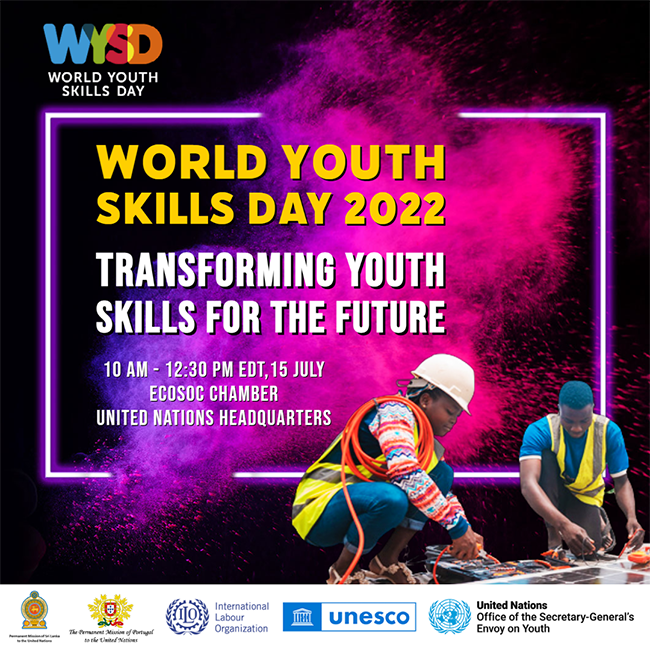Guterres.
The UN Chief made these words on Friday, July 15, 2022 during the World Youth Skills Day celebrations.
In 2014, the United Nations General Assembly declared July 15 as World Youth Skills Day.
The idea behind this move is to celebrate the strategic importance of equipping young people with skills for employment, decent work and entrepreneurship.
And since then, World Youth Skills Day has provided a unique opportunity for dialogue between young people, technical and vocational education and training (TVET) institutions, firms, employers’ and workers’ organizations, policy-makers and development partners.
World Youth Skills Day 2022 took place amid concerted efforts towards socio-economic recovery from the COVID-19 pandemic that are interconnected with challenges such as climate change, conflict, persisting poverty, rising inequality, rapid technological change, demographic transition among others.
Research shows that young women and girls, young persons with disabilities, youth from poorer households, rural communities, indigenous peoples, and minority groups, as well as those who suffer the consequences of violent conflict and political instability, continue to be excluded due to a combination of factors.
In addition, the crisis has accelerated several transitions the world of work was already undergoing, which add layers of uncertainty regarding the skills and competencies that will be in demand after the pandemic is overcome.
TVET is well placed to help address these challenges by reducing access barriers to the world of work, ensuring that skills gained are recognized and certified, and offering skills development
opportunities for out-of-school youth and those not in employment, education or training (NEET).
Experts have declared that during this Decade of Action for the 2030 Agenda, the full engagement of young people in global processes is vital to generate positive change and innovation.
The celebrations of World Youth Skills Day 2022 highlighted the ongoing focus on the Transforming Education Summit (September 2022), and contributed to the work being done under its Thematic Action Track “Learning and skills for life, work, and sustainable development”. The summit is a youth-inspired global event of major importance for the future of millions of young people; it is prepared by, with and for youth.
The “Transforming youth skills for the future” global event was co-organized by the Permanent Missions of Portugal and Sri Lanka to the United Nations, together with UNESCO, ILO and the Office of the Secretary-General’s Envoy on Youth. It brought together youth, governments, UN agencies, private sector and civil society representatives to analyse the impact of current crises on youth
across the world, and discussed how young people can quickly adapt to the demands of an ever-changing world.
Moreover, organisers state, the growing youth population, rising unemployment in many countries, changes in the labour market and in our economy due to technological developments are just some of the reasons why we must provide future generations with the entrepreneurial skills and mindsets they need to cope with a changing world.
And to help technical and vocational education and training (TVET) institutions form the entrepreneurial values that are important for young people’s lives, economic development and a sustainable society, UNESCO–UNEVOC has developed a practical guide on how to introduce
entrepreneurial learning where it is lacking, and how to mainstream it in vocational training.
To the question of: What role do technical and vocational education and training play? The overwhelming response from experts and industry leaders is that, education and training are central to the achievement of the 2030 Agenda.
And the vision of the Incheon Declaration: Education 2030 is fully captured by Sustainable Development Goal 4 “Ensure inclusive and equitable quality education and promote lifelong learning
opportunities for all”.
They add that, Education 2030 devotes considerable attention to technical and vocational skills development, specifically regarding access to affordable quality Technical and Vocational Education and Training (TVET); the acquisition of technical and vocational skills for employment, decent work and entrepreneurship; the elimination of gender disparity and ensuring access for the vulnerable.
In this context, TVET is expected to address the multiple demands of an economic, social and environmental nature by helping youth and adults develop the skills they need for employment, decent work and entrepreneurship, promoting equitable, inclusive and sustainable economic growth, and supporting transitions to green economies and environmental sustainability, the experts emphasize.












